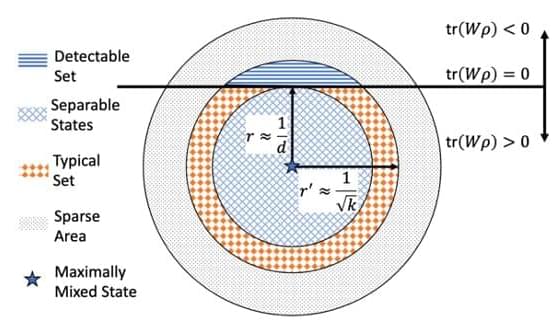Quantum entanglement is a process through which two particles become entangled and remain connected over time, even when separated by large distances. Detecting this phenomenon is of crucial importance for both the development of quantum technology and the study of quantum many-body physics.
Researchers at Tsinghua have recently carried out a study exploring the possible reasons why the reliable and efficient detection of entanglement in complex and “noisy” systems has often proved to be very challenging. Their findings, published in Physical Review Letters, hint at the existence of a trade-off between the effectiveness and efficiency of entanglement detection methods.
“Over 20 years ago, researchers discovered that most quantum states are entangled,” Xiongfeng Ma, one of the researchers who carried out the study, told Phys.org.
